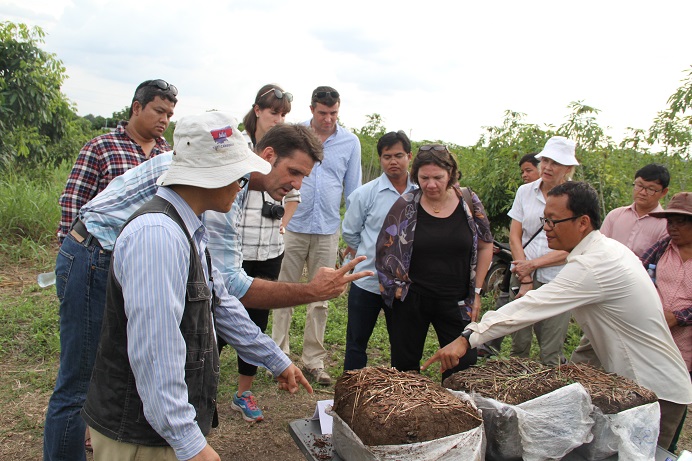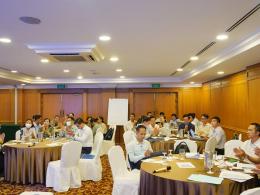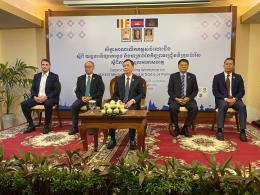 Conventional agricultural practices often lead to negative impacts on natural resources such as soil, water and biodiversity. More frequent and severe drought periods are resulting in increased vulnerability of smallholder farmers in rainfed agriculture areas, which account for over 80 percent of total arable land in Cambodia. DMC system was developed to address these challenges, by building soil resilience and increasing adaptive capacity of smallholder farmers vis-a-vis water shortages and drought.
Conventional agricultural practices often lead to negative impacts on natural resources such as soil, water and biodiversity. More frequent and severe drought periods are resulting in increased vulnerability of smallholder farmers in rainfed agriculture areas, which account for over 80 percent of total arable land in Cambodia. DMC system was developed to address these challenges, by building soil resilience and increasing adaptive capacity of smallholder farmers vis-a-vis water shortages and drought.
Results of experiments in Cambodia are showing that the system is an effective adaptation measure to improve soil water retention capacity and reduce evaporation. Moreover, this system may minimize crop climate risks by providing local farmers with more flexible options of growing primary crops such as cassava and rice in succession with different short-cycle crop options as secondary crops. DCM also contributes to reducing GHG emissions as it stops soil tillage and ridging, gradually increasing the organic matter in the soil (including soil organic carbon), and thus increasing carbon sequestration. DCM is thus a joint adaptation and mitigation measure.
Ecological Intensification and Soil Ecosystem Functioning (EISOFUN) Project, implemented by the General Directorate of Agriculture, the Royal University of Agriculture and the Institute of Technology of Cambodia, with support from CCCA, aims to produce scientific knowledge on soil ecosystem services that can assist policymakers in designing sound innovative policies and mechanisms to support farmers and increase DMC dissemination. EISOFUN partners highlight the project’s contribution to the implementation of Cambodia Climate Change Strategic Plan and Strategic Development Plan of the MAFF by promoting climate-smart agriculture and strengthening the development of innovative ecological intensification practices to contribute to both climate change adaptation and mitigation in Cambodia. Results from this project will contribute to inform MAFF’s programs and national policies (e.g. law on agricultural land management) and help disseminate DMC through farmer field days, multi-stakeholder forums, policy briefs and wider knowledge sharing and dissemination platforms.
WHAT IS THE DMC SYSTEM?
Direct Seeding Mulch-based Cropping (DMC) system applies three technical principles of conservation agriculture practices: less soil disturbance; permanent soil protection; and crop diversification. With DMC, the optimized use of multifunctional cover crops and adequate crop diversification improve biological processes and the overall production system, contributing to restore living soil. DMC uses a diversity of plants with specific temporal and spatial sequences at farm and landscape levels to optimize plant nutrient availability, reduce water and nutrient losses, enhance soil biota and optimize the mutual benefits in agro-ecosystem through biological interactions and synergies.



